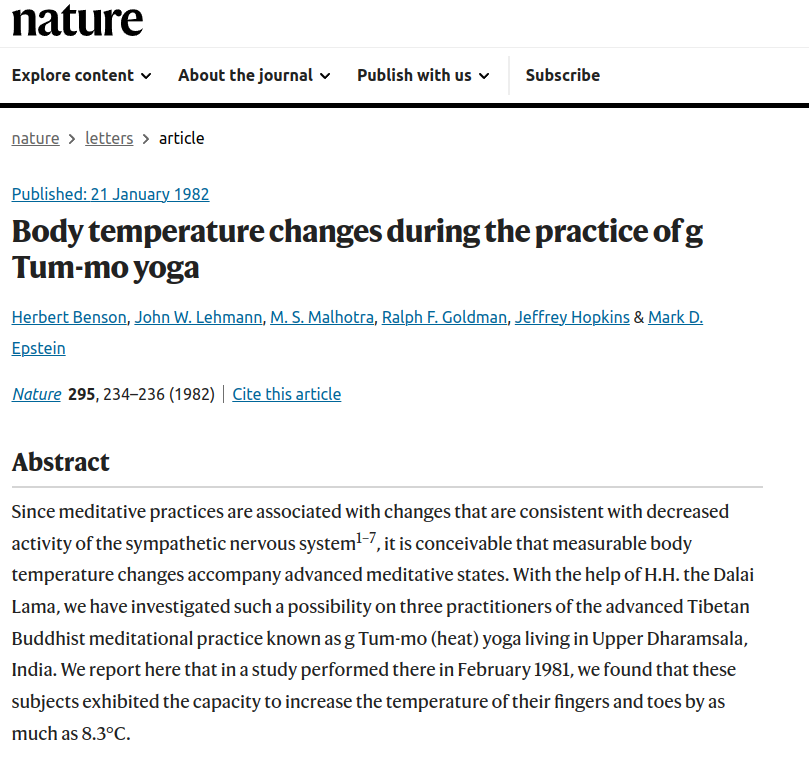Publication
Nature
295, 234-236
Abstract
Since meditative practices are associated with changes that are consistent with decreased activity of the sympathetic nervous system, it is conceivable that measurable body temperature changes accompany advanced meditative states. With the help of H.H. the Dalai Lama, we have investigated such a possibility on three practitioners of the advanced Tibetan Buddhist meditational practice known as g Tum-mo (heat) yoga living in Upper Dharamsala, India. We report here that in a study performed there in February 1981, we found that these subjects exhibited the capacity to increase the temperature of their fingers and toes by as much as 8.3°C.
Web and Email Links
Related Listings
Journal
Journal of Cardiopulmonary Rehabilitation
We previously reported reduced blood pressure, psychological symptoms, and other cardiac risk factors in hypertensive patients who participated in a nonpharmacologic, outpatient behavioral program. The present study is a 3 to 5 year follow-up of 59 (60%) of the same patients (who served as their own controls) to assess continued efficacy of the program. At entry into the study, patients had hypertension for a median of 6 years. Therefore, it is unlikely that placebo effect could expla […]
Journal
Complementary Therapies in Medicine
Background Transcendental meditation (TM) is a stress reduction technique that can potentially lower blood pressure (BP) safely. The American Heart Association recommends that TM may be considered in clinical practice. Objective To provide an overview of all systematic reviews and meta-analyses of TM on BP for evidence-informed clinical decision making. Method Systematic searches of PubMed, EBSCOhost, Cochrane Library, Web of Science, Embase, and PsycINFO for all systematic rev […]
Journal
Behavior Research and Therapy
In this study, Herbert Benson's (1975) Relaxation Response Meditation program was tested as a possible treatment for Irritable Bowel Syndrome (IBS). Participants were 16 adults who were matched into pairs based on presence of Axis I disorder, primary IBS symptoms and demographic features and randomized to either a six week meditation condition or a six week wait list symptom monitoring condition. Thirteen participants completed treatment and follow-up. All subjects assigned to the Wai […]

